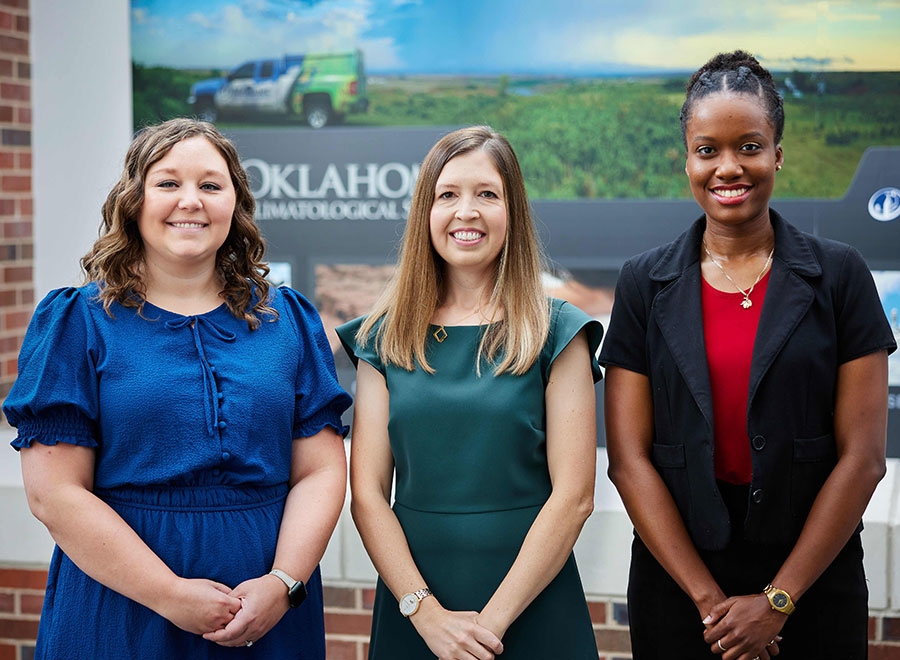
NORMAN, OKLA. – The Southern Climate Impacts Planning Program, led by the University of Oklahoma, is part of a multi-institution team awarded $6.9 million for the Climate Resilient Skills Training Program. The project, led by the Flood Mitigation Industry Association, will develop and implement a curriculum to educate skilled workers in Louisiana on climate-resilient practices. The funding is part of $60 million from the Biden Administration’s Investing in American agenda under the Inflation Reduction Act.
“There are a lot of projects that are being funded to strengthen infrastructure and to try to mitigate flooding, but there’s also a lack of workforce, of people who know how to do that work,” said Rachel Riley, director of SCIPP. “This project will help solve that problem and, in the process, improve the climate literacy of the people who participate in these workforce development programs.”
Over a four-year period, OU’s SCIPP team members will collaborate with Louisiana State University colleagues to design and test the climate portion of a curriculum training program that will help coastal communities develop skilled workers in flood mitigation practices. The pilot program will start in Lake Charles, Louisiana, located in a parish that suffered significant impacts from Hurricanes Laura and Delta in the record-breaking 2020 Atlantic hurricane season. The work done in Lake Charles will be translatable to all coastal communities, and the program may be offered in multiple languages. Those trained through the program will be placed in careers in the flood mitigation industry, meeting the need for skilled workers in areas suffering directly from climate-related impacts that are exacerbated by climate change.
“Climate change accelerates the need for a new generation of skilled workers who can help communities address a wide range of climate impacts including sea level rise, flooding, water quality issues and the need for solutions such as renewable energy,” said U.S. Secretary of Commerce Gina Raimondo in a statement announcing this and eight other projects to advance a climate-ready workforce.
This is SCIPP’s first time partnering with the Flood Mitigation Industry Association. According to Riley, the FMIA works directly with construction companies and those who work in construction to develop and implement flood resistant and flood resilient construction practices.
“Our LSU colleagues have historically done a lot of research on heavy rainfall and the atmospheric dimensions that go into flooding,” said Darrian Bertrand, climate assessment specialist at SCIPP. “This is a unique opportunity for us to work on the mitigation side and the action step about what folks can do about flooding.”
SCIPP is a regional organization that helps with climate decision making in the south-central United States, covering the states of Oklahoma, Texas, Louisiana and Arkansas, funded by the National Oceanic and Atmospheric Administration’s Climate Adaptation Partnerships Program. OU leads the partnership with Louisiana State University, Texas Sea Grant at Texas A&M University and Adaptation International.
“A lot of the work that we do [here at OU] is in the awareness-building and assessment realm. This is an opportunity for our climate knowledge to be directly informing the physical actions that people are taking in construction,” said Riley. “It’s a unique and exciting element that is actually affecting people on the ground in the real world.”

About the project
The Climate Resilient Skills Training Program is funded through the Climate-Ready Workforce Initiative. The award is for $6,926,245 over four years.
About the University of Oklahoma
Founded in 1890, the University of Oklahoma is a public research university located in Norman, Oklahoma. As the state’s flagship university, OU serves the educational, cultural, economic and health care needs of the state, region and nation. OU was named the state’s highest-ranking university in U.S. News & World Report’s most recent Best Colleges list. For more information about the university, visit ou.edu.
To combat power outages and extreme weather events, a team led by University of Oklahoma researchers has helped launch a project utilizing electric school buses as a backup energy resource.
The University of Oklahoma Health Campus was recently recognized for its increased momentum in advancing discoveries that change lives, achieving the state’s first Top 100 national ranking based on funding from the National Institutes of Health, according to the Blue Ridge Institute for Medical Research. The ranking—the highest in OU’s history and in the state—solidifies the University’s position as the state’s leading driver of health-related research.
Stefano Tarantini, an assistant professor in the Department of Neurosurgery at the University of Oklahoma College of Medicine, spends his days in the laboratory searching for answers to the cognitive decline that too often plagues older adults.